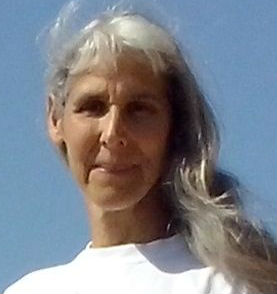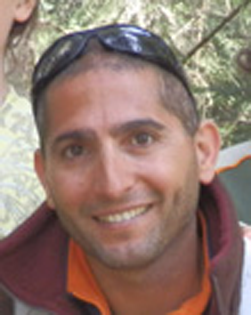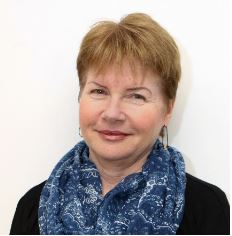








Ben-Gal, Michal
Michal Ben Gal (University of Haifa)
Michal Ben Gal is a researcher and the Academic coordinator of the National Knowledge and Research Center for Emergency Readiness and the Minerva Center for the Rule of Law under Extreme Conditions at the University of Haifa. Michal received her PhD from the University of Haifa (2004). She is a planner (Master of City and Regional Planning, Faculty of Architecture and Planning, Technion, 1998) and member in the Israel Planners Association, as well as a lawyer (LL.B. from the University of Haifa, Faculty of Law (2009); admitted to the Israeli bar December 2010). Her main research interests include regulatory frameworks for emergency situations, and mitigation and facilitation of public and environmental conflicts. She teaches Law and the Marine Environment at the Ruppin Academic Center School of Marine Sciences. Other professional experience includes roles as planner, mediator, coordinator and adviser for public participation processes. She is civically active in public issues surrounding planning projects.
Agnon, Amotz
Hebrew University
Social Science; Environment
Amotz Agnon is a full professor at the Institute of Earth Sciences in the Hebrew University. He obtained his BSc and MSc in Geology at the Hebrew University, Jerusalem (1977-1983) and his PhD in Geophysics at UC Berkeley (1989). He has been teaching and researching at the Hebrew University since 1989, being a Visiting Professor at Stanford University (1997/8) and Institut de Physique du Globe, Paris (204-2005).
Awards:
Landau Research Prize - 1982
Grader Prize - Israel Geological Society - 1989
Freund Prize - Israel Geological Society - 2007
International Fellow - Helmholtz Association – 2012
Zohar, Motti
Motti Zohar (University of Haifa) - Social Science; methodological aid to all groups
Dr. Motti Zohar is a senior lecturer in the department of Geography and Environmental Studies at the University of Haifa. He is a physical geographer studying natural hazards such as earthquakes, tsunamis and floods. He also develops themes related to Environmental History, in particular the interplay between the environment and human societies and how extreme events affected civilizations in historical times. His other interests are Geographic Information Systems (GIS), spatial models, mapping and cartography.
Amster, Eric
Eric Amster (University of Haifa) – Public Health and Emergency Medicine
Eric Amster is a physician specializing in occupational and environmental medicine and is an epidemiology researcher. He studied biology and medicine at the University of California Berkeley and Davis, and holds a graduate degree and post-doc in public health from the Harvard School Public Health. He has been involved in emergency management of disaster relief following Hurricane Katrina in New Orleans, studied the health effects of emergency workers following the September 11th disaster in NY and the Carmel Forest fire in Israel. Dr. Amster came to Israel on a two year Fulbright Scholar grant from the U.S. Department of State. Since coming to Israel he has been an instructor at the Hebrew University and Technion Faculties of Medicine and is currently head of the Department of Environmental and Occupational Health at the University of Haifa, School of Public Health. His research focuses on exposure assessment and health effects from exposure to industrial pollutants and exposures from environmental and occupational disasters.
Ayalon, Ofira
Ofira Ayalon (University of Haifa) - Environment
Prof. Ofira Ayalon holds a Ph.D from Faculty of Agricultural Engineering, Technion, Haifa (2000). Since her graduation she teaches at the Department of Natural Resources and Environmental Management, Graduate school of Management, University of Haifa and acts as Head of Environment cluster at the Samuel Neaman Institute, Technion.
Since 2010 she is the Director of NRERC- Natural Resource and Environmental Research Center at the University of Haifa and the head of the Energy Management and Policy program at the Department of Natural Resources and Environmental Management.
Her research topics involve a wide range of activities related to environmental research and policy implications. The studies have served as a model for nationally recognized, updated energy and environmental activities for a variety of academic and public bodies that promote environmental policy in Israel. The resulting reports are submitted and jointly followed-up in cooperation with the Ministries of Finance, National Infrastructure and Environmental Protection, as well as other relevant government bodies.
Recent research topics include mitigation of greenhouse gases as well as adaptation to climate change. waste management, energy policy and management, agriculture and the environment, business opportunities in environmental technologies (clean-tech), and reducing transportation-related air pollution.
Azaiza, Faisal
Faisal Azaiza (University of Haifa) – Welfare and Social Work
Professor Faisal Azaiza, Ph.D. is Professor at the School of Social Work and the Dean of Faculty for Social Welfare and Health Sciences at the University of Haifa. Dr. Azaiza has been a full professor since 2011 in the School of Social Work at the University. Most recently, Professor Azaiza also served as the Deputy Chairman of the Planning and Budget Committee for the Council on Higher Education in Israel, one of many public leadership positions the professor has held in Israel over the course of his professional and academic life. Throughout his career, Azaiza has dedicated himself to the welfare and health of Arab populations in Israel. His work addresses social problems from an evidence-based perspective, and he works to produce action-oriented research that offers solutions to challenges faced by the Arab community in Israel.
Professor Azaiza is strongly committed to understanding how to help those living in a time of crisis manage their health, their relationships and their sense of self. In 2007, in cooperation with the Ministry of Health, Ministry of Welfare, and Ministry of Interior, he organized a successful conference at the University of Haifa entitled: " Dealing with Stressful Situations: It concerns Us All – How Culture Influences the Way We Cope with Stressful Situations and Crises." This conference set the foundation of Professor Azaiza's book publication in 2010, Welfare, Health and Education Services in Times of Crisis.
Bahouth, Hany
Hany Bahouth M.D, BSc (Rambam Health Care Campus; Technion) – Public Health and Emergency Medicine
Medical School- The Hebrew University at Hadassah Medical School – Jerusalem
General Surgery Residency – Rambam Health Care Campus. Trauma Fellowship- 2 years clinical program- Ryder Trauma Center, Jackson Memorial Medical Center- Miami ' Florida, USA. 2011 - Director of Trauma and Emergency Surgery, Rambam Health Care Campus
2015 – Chairman of the Israeli Trauma Society. Medical director of the Trauma and Mass Casualty School – Rambam Health Care Campus/ Interested in MCS and Organization of Trauma systems
Band-Winterstein, Tova
Tova Band-Winterstein (University of Haifa) – Welfare and Social Work
Tova Band Winterstein, PhD, is a Senior Lecturer at the Department of Gerontology, Faculty of Social Welfare & Health Sciences, University of Haifa, Israel. Her main area of research in Israel is elder abuse and neglect including self-neglect and intimate partner violence along the life course. In Her work she combines knowledge generated from practice and theoretical knowledge aimed towards development of theory in gerontology on okder adults at risk. She is an experienced qualitative researcher and address issues of health, family and needs of the older adults from a life course perspective. Recently have been doing qualitative research on aging families with disabilities, older person suicidality and its meaning on family members, and sexual assault in old age. She is publishing articles in Refereed Journals and wrote two scientific books.
Barzilai, Gad
Gad Barzilai (University of Haifa) – Law Group head
Gad Barzilai is a Full Professor of law, political science and international studies, Professor Emeritus at University of Washington, Dean Emeritus of University of Haifa Law Faculty and Vice Provost and Head of the International School, University of Haifa. His academic degrees and training are from Tel Aviv University, Hebrew University Jerusalem, Yale, and University of Michigan Ann Harbor. He has published extensively 17 books and about 165 articles and essays in academic top journals and publishing houses on issues of law, society and politics. Several of his books are award winning books. Thus, for example, in his Communities and Law: Politics and Cultures of Legal Identities [University of Michigan Press, 2003, 2005] he paved the way for a new understating of the role of communities in shaping practices in law and towards it. This book was awarded the Best Book Prize by the AIS and was selected to a special conference panel in the Law and Society conference in Chicago (2004). In his Law and Religion [Ashgate, International Series on Law and Society, 2007] he has edited some of the classics on law and religion and made a meaningful contribution to our understanding of this topic. In his Wars, Internal Conflicts and Political Order [SUNY 1996], he has suggested a new way for understanding the construction of political-legal order and disorder in times of national security emergencies. The Hebrew manuscript of this book was awarded the Best Book Award in National Security by the Ben Gurion Foundation. Among others he has published on politics of rights, comparative law, law and political power, law and violence, communities and law, group rights, liberal jurisprudence, national security, democracies and law, and issues concerning Middle East and Israeli politics and law. In his research he is often combining knowledge in law, the social sciences, mainly political science and political sociology, with political theory, theories of jurisprudence, comparative politics and comparative law. He has been trained to use both qualitative and quantitative methodologies. Barzilai was the President of the Association for Israel Studies (2011-2013) and the Founding First Director of the Dan David Prize (1999-2002). He is a Board member of editorial boards in several world leading professional journals.
Ben-Dor, Gabriel
Gabriel Ben-Dor (University of Haifa) – Social Science
Gabriel Ben-Dor conducted the largest scale annual surveys on national resilience in Israel for the last seventeen years. As such, he is considered one of the leading experts in Israel and beyond on the subjective features of national resilience.


